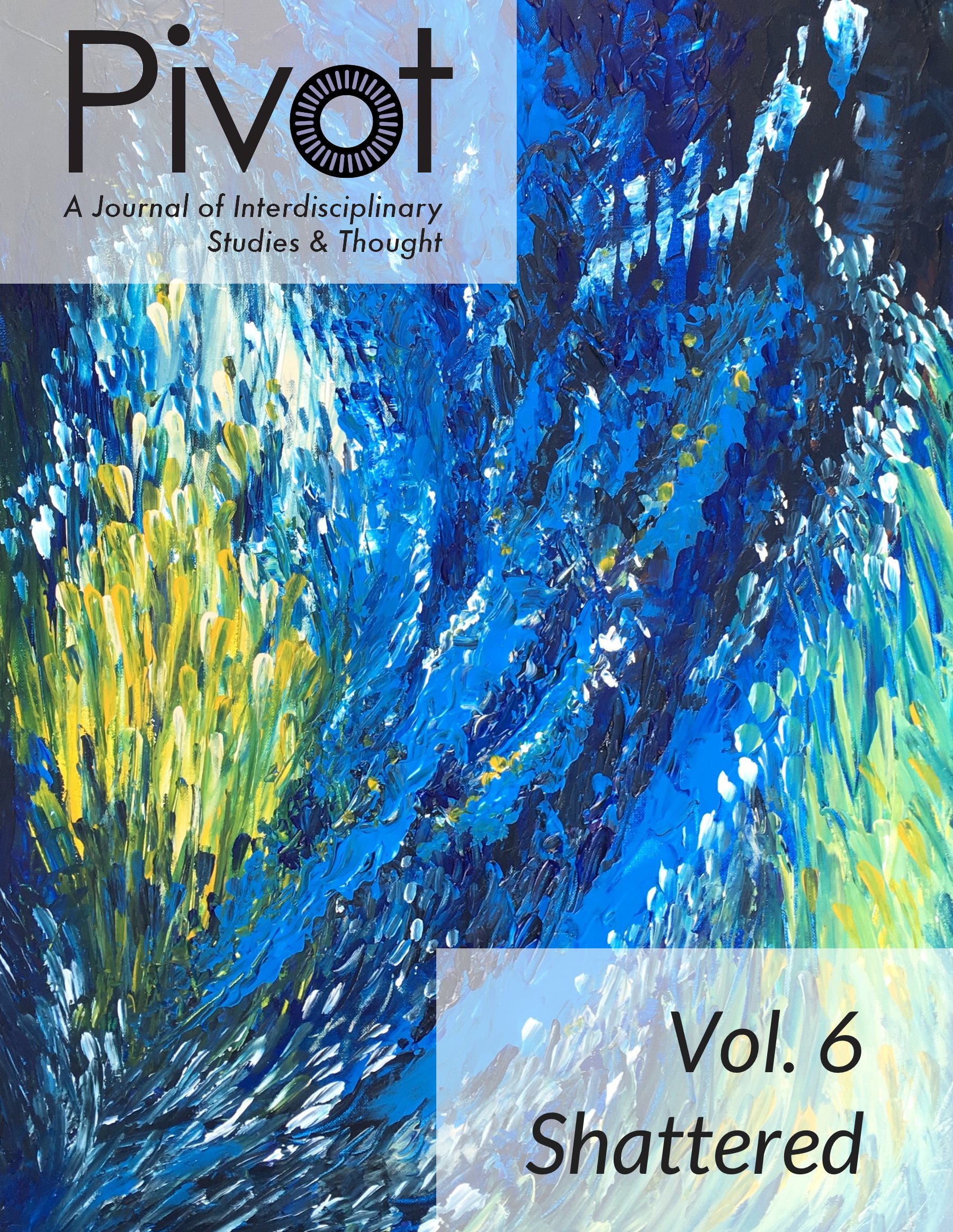Zahra: a Shattered Body and Voice from Lebanon
DOI:
https://doi.org/10.25071/2369-7326.40275Abstract
This article examines the gradual disintegration of Zahra, a girl from Lebanon. It studies the role of mothers in patriarchal societies and the impact of their conservative education on their daughters’ emotional and psychological growths. Raised to believe in her inferiority due to her femaleness, Zahra constantly tries to live up to the social expectations for the female gender. Each subsequent trial ends in failure. When the civil war breaks out in Lebanon, the resulting societal chaos temporarily relieves Zahra from the duties of her gender. Only this break is shortly lived as Zahra is killed.
References
al-Shaykh, Hanan. The Story of Zahra. Translated by Peter Ford, Anchor, 1995.
Accad, Evelyne. “Guns and Roses: On Sexuality and War.” Little Magazine, vol. 2, no.1, 2001, pp. 1–7.
Accad, Evelyne. Sexuality and War: Literary Masks of the Middle East. NYU P, 1990.
Bartky, Sandra Lee. “Foucault, Femininity, and the Modernization of Patriarchal Power.” Writing on the Body: Female Embodiment and Feminist Theory, edited by Katie Conboy, Nadia Medina, and Sarah Stanbury, Columbia UP, 1997, pp. 129–54.
Bordo, Susan. Unbearable Weight: Feminism, Western Culture, and the Body. 1993. U of California P, 2004.
Breuer, Josef, and Sigmund Freud. Studies on Hysteria. Translated and edited by James Strachey, with Anna Freud, Basic, 2000.
Brownmiller, Susan. Femininity. Linden, 1984.
Chebel, Malek. “Mères, sexualité et violence.” Être femme au Maghreb et en Méditerranée: Du mythe à la réalité, edited by Andrée Dore-Audibert and Souad Khodja, Karthala, 1998, pp. 49–59.
Cooke, Miriam. “Arab Women Arab Wars.” Cultural Critique, vol. 29, 1994–1995, pp. 5–29. DOI: https://doi.org/10.2307/1354420
Cooke, Miriam. “Beirut…Theatre of the Absurd…Theatre of Dreams…: The Lebanese Civil War in the Writings of Contemporary Arab Women.” Journal of Arabic Literature, vol. 13, 1982, pp. 124–41. Print. DOI: https://doi.org/10.1163/157006482X00106
Cooke, Miriam. Women and the War Story. U of California P, 1997.
Djebar, Assia. Women of Algiers in Their Apartment. Translated by Marjolijn de Jager and Clarisse Zimra, U of Virginia P, 1992.
Fayad, Mona. “Reinscribing Identity: Nation and Community in Arab Women’s Writing.” College Literature, vol. 22, no.1, 1995, pp. 147–60.
Flax, Jane. “The Conflict between Nurturance and Autonomy in Mother–Daughter Relationships and within Feminism.” Feminist Studies, vol. 4, no. 2, 1978, pp. 171–89. DOI: https://doi.org/10.2307/3177468
Foucault, Michel. Discipline and Punish: The Birth of the Prison. 1975. Translated by Alan Sheridan, Vintage, 2012.
Ghandour, Sabah. “Hanan al-Shaykh’s Hikayat Zahra: A Counter-Narrative and a Counter-History.” Intersections: Gender, Nation, and Community in Arab Women’s Novels, edited by Lisa Suhair Majaj, Paula W. Sunderman, and Therese Saliba, Syracuse UP, 2002, pp. 231–49.
Hamdar, Abir. The Female Suffering Body: Illness and Disability in Modern Arabic Literature. Syracuse UP, 2014.
Higonnet, Margaret R., and Patrice L.-R. Higonnet. “The Double Helix.” Behind the Lines: Gender and the Two World Wars, edited by Margaret Randolph Higonnet,
Jane Jenson, Sonya Michel, and Margaret Collins Weitz, Yale UP, 1987, 31–47.
Kristeva, Julia. Powers of Horror. An Essay on Abjection. Translated by Leon S. Roudiez, Columbia UP, 1982. Print.
LeMoncheck, Linda. Dehumanizing Women: Treating Persons as Sex Objects. Rowan and Allanheld, 1985.
Pearman, Tory Vandeventer. Women and Disability in Medieval Literature. Palgrave Macmillan, 2010. DOI: https://doi.org/10.1057/9780230117563
Russo, Mary. The Female Grotesque. Risk, Excess and Modernity. Routledge, 1994.
Thomson, Rosemarie Garland. Extraordinary Bodies: Figuring Physical Disability in American culture and Literature. Columbia UP, 1997.
Thomson, Rosemarie Garland. “Feminist Theory, the Body, and the Disabled Figure.” The Disability Studies Reader, edited by Lennard J. Davis, Routledge, 1997, pp. 279–92.
Welldon, Estela V. Mother, Madonna, Whore. The Idealization and Denigration of Motherhood. Karnac, 1992.
Zeidan, Joseph T. Arab Women Novelists: The Formative Years and Beyond. SUNY P, 1995.


